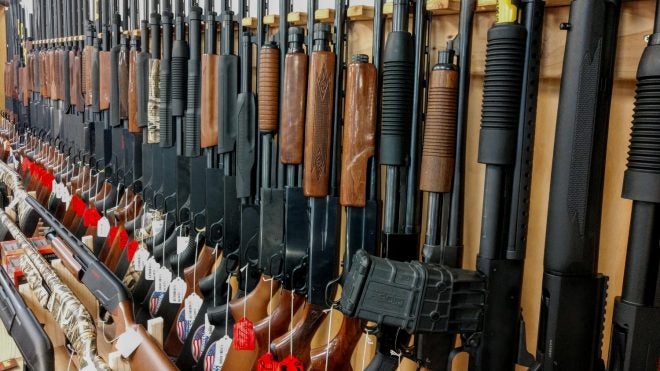Welcome to another installment of TFB’s First Firearm Series. This series is dedicated to those that are contemplating buying their first firearm ever, or the first firearm for the specific topic that we are discussing each week. In this week’s edition, we are covering the first hunting shotgun someone might purchase and things to consider before you take one home with you.
FIRST FIREARM SERIES: FIRST Hunting Shotgun
So you have decided that it is finally time to expand your gun collection (or start it off) with a hunting shotgun. It is always fun to delve into new categories of firearms and explore your potential options, but before you peel open your wallet there are several things you should consider. What is your stature and age? There is no implied joke in that statement, but merely alluding to what is your length-of-pull? What exactly are you hunting? How do you hunt? What environment do you hunt in? Live in? What are your cleaning habits? If you hate cleaning guns, then be honest with yourself.
How you personally answer all of these questions will dictate what type of shotgun is best suited for you. We will not simply pose the questions and leave you hanging though. We will walk through all of these as well as propose some more food for thought questions to spark some internal dialogue with yourself so hopefully you choose the best possible 1st hunting shotgun you can for yourself.
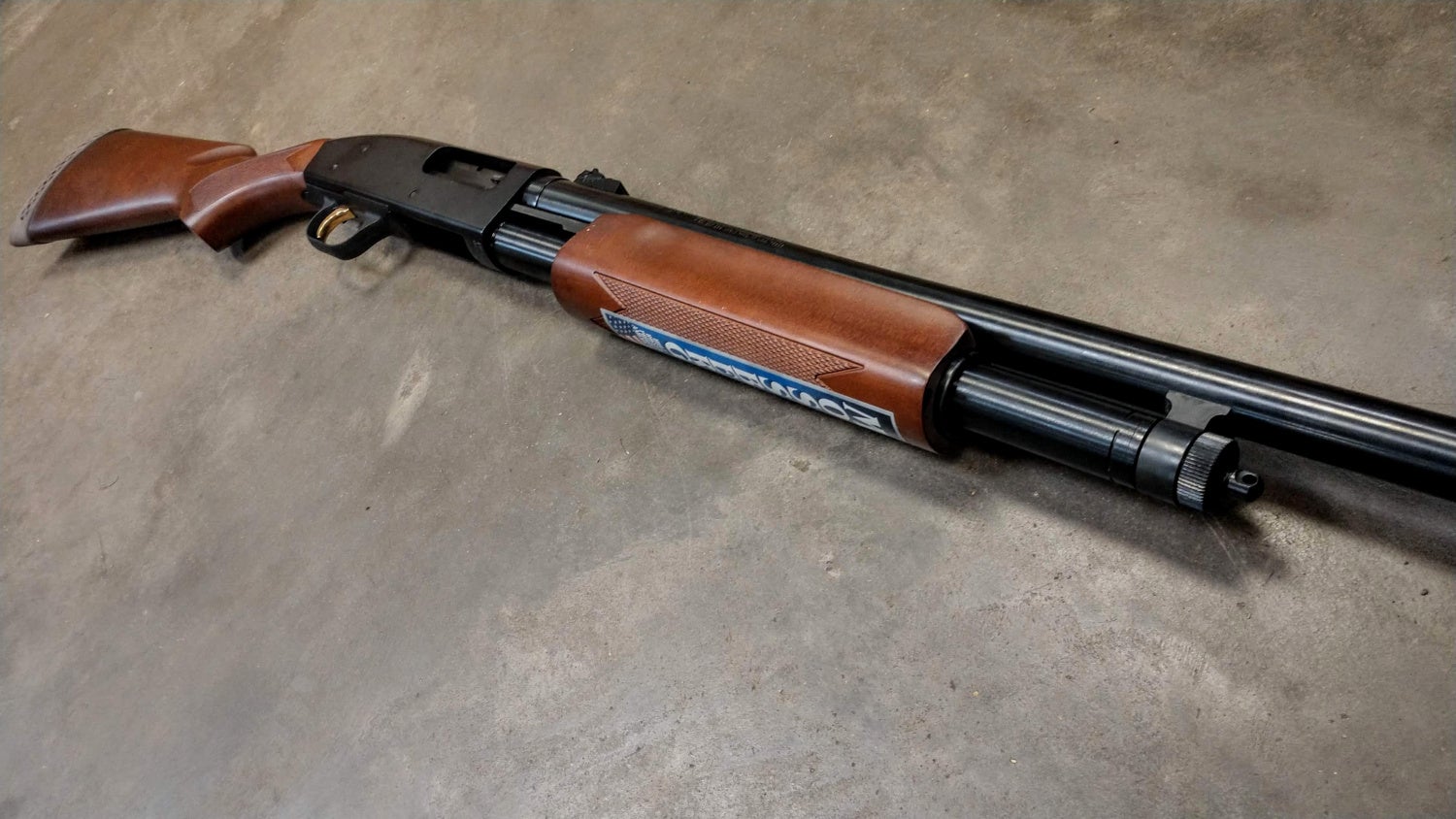
FIRST FIREARM SERIES: FIRST Hunting Shotgun – size
Shotguns can vary considerably in not only their footprint and size, but their weight as well. You could choose a break-open, single-shot .410 Gauge that barely registers at 3 lbs or conversely hoist a semi-automatic 10 Gauge that pushes 10 Lbs in weight. How do you get from one extreme to the other though? It is all about the size of the shooter and the intended use of the shotgun. If you so happen to be a smaller guy or gal, you may want to entertain lighter shotguns such as a single-shot, over-and-under, and/or a lightweight pump-action. This is not a knock on anyone’s manliness or saying someone is not woman enough to shoot any particular type of firearm based on recoil. You merely need to match your length-of-pull with your stature and assess if your choice in a hunting shotgun could be carried around all day (8+ hours, if need be).
If you are a bigger man or woman, can shoulder a heavy gun, and have a considerable wingspan you equally need to choose firearms that are not undersized to your frame. If you do, this could create an improper point-of-aim and create bad fundamentals for shooting. You do not necessarily need a big caliber, but once again you need to fit your first hunting shotgun to you and not just be jonesing with what your friends might own.

Remington 870 Field 12 Gauge Pump-Action
With all that being said, I cannot exude completely through text what will be your perfect fit. The best thing to do is to head to your local gun shop and shoulder as many shotguns as you possibly can. The weight, feel and handling for a shotgun is different for everybody so you need to identify what you like and equally disqualify firearms that are not a match for you.
The best analogy I can give is that you could be handed a $5,000 shotgun off the shelf. The price tag is already screaming that the shotgun is oozing premium features and quality, but if you shoulder it, and it feels wonky; like a 2×4 piece of lumber would be more comfortable, then, that hunting shotgun is simply not for you. There is nothing wrong with that $5,000 shotgun you just held nor is there anything wrong with you. You two are simply not a match. You could then grab a $125 shotgun off the wall that closely resembles drift-wood, but if it points well for you and feels like home, guess which gun you will be more confident with and likely more accurate?… Better hang onto that drift-wood.
FIRST FIREARM SERIES: FIRST Hunting Shotgun – application
A question that you may want to try and answer in tandem while identifying the correct size is what are you going to hunt? As your interests evolve over the years this could be a pretty wide gamut of things. I was introduced to shotguns through deer hunting in Minnesota in a slug zone (sabot or rifled slugs were the only legal means of harvesting a deer in my specific part of the state). From that starting point, I have also tried hunting grouse, turkey, ducks, and pheasants. Since many of us hunters chase so many different types of game, it is important to choose a hunting shotgun that leaves your options open. Even if you currently have only one interest, that could change in the future.
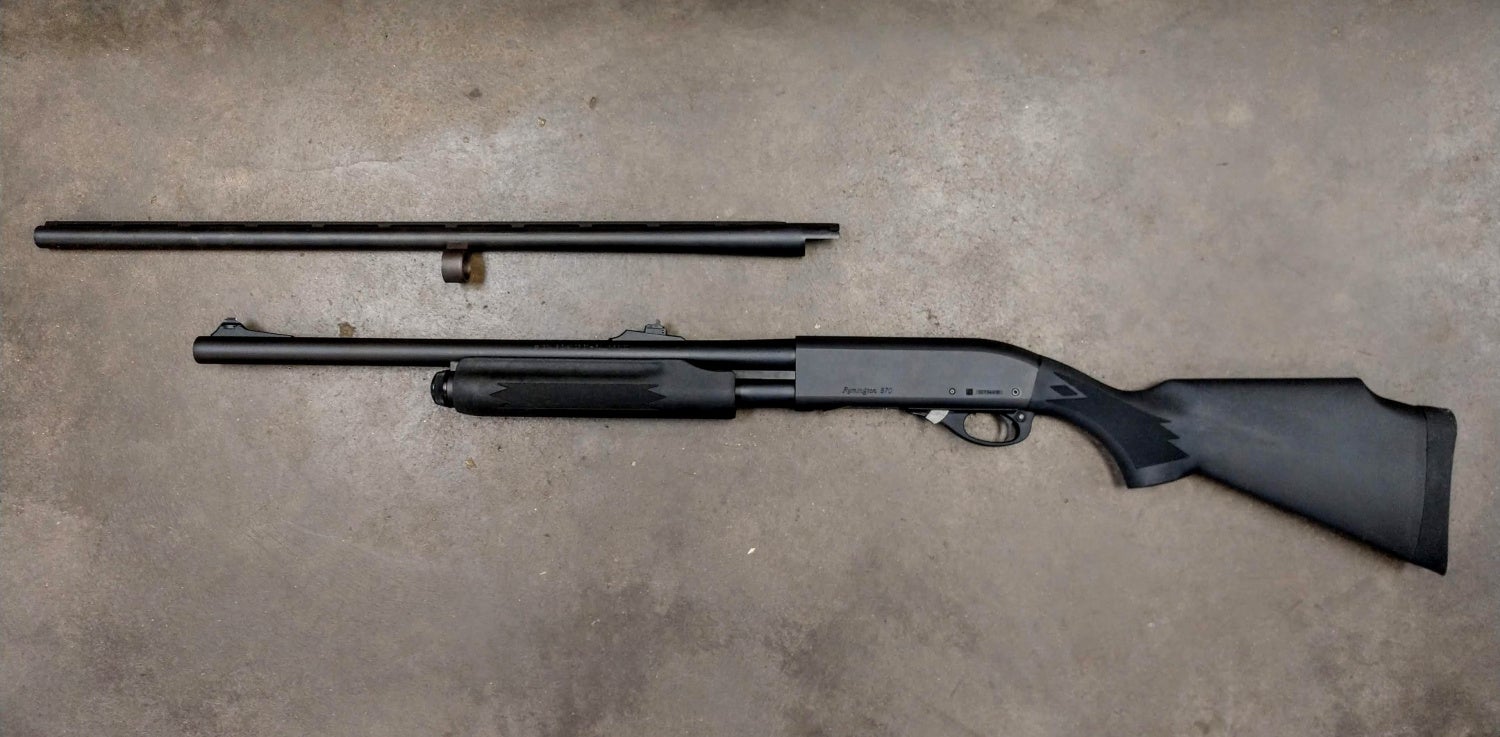
Remington 870 Combo – Field Barrel & Rifled Slug Barrel
One manufacturer and model that is worth considering is a Remington 870 because you can purchase them as a Combo (2 barrel set). Many manufacturers offer combo shotguns because it just affords you more options for hunting game as previously discussed. If you buy a dedicated shotgun, whether it is a Mossberg 500, Remington 870, or something else, most manufacturers sell barrels separately so you can create a combo yourself at a lesser cost of buying an additional firearm.
My personal, bias opinion is that a Mossberg 500 or Remington 870, in a dedicated shotgun or a combo, would make for a perfect first hunting shotgun. If you believe I am wildly off-base and wrong, that is totally OK. What I would respond with is that someone should choose their favorite “X, Y, Z Brand” that at least leaves the door open for a combo to be created. This would eliminate a lot of action types.
- Lever-Action
- Single-Shot, Break-Open
- Bolt-Action
- Revolvers
- Revolving Carbines
- Side-by-Side
- Over-and-Under
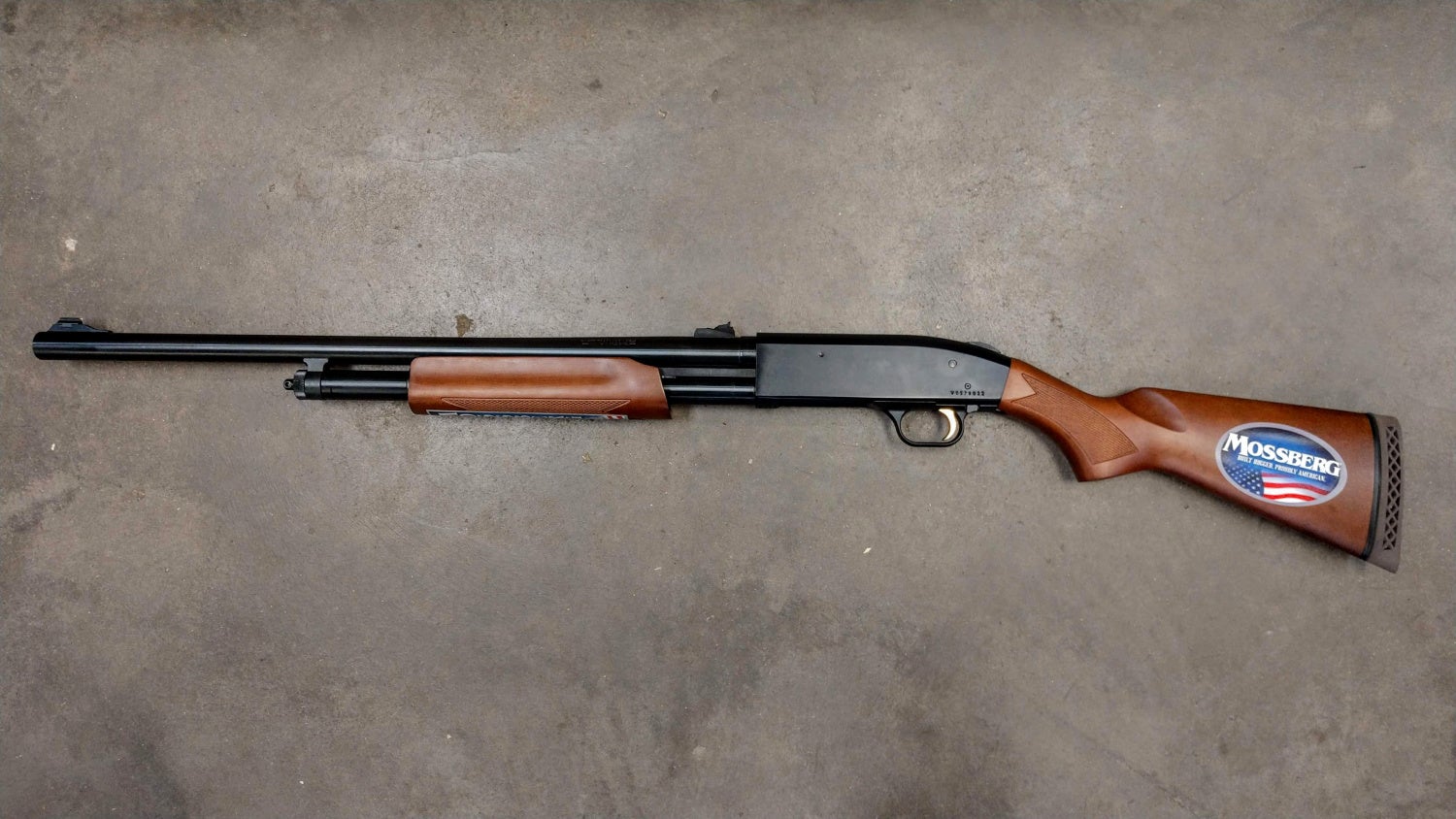
While all of these different action types can serve a great purpose, many of them are very niche. They also do not offer barrel options that could be applied towards rifled slugs/sabots which could be used to hunt a litany of big-game: wild boar, bear, deer, moose, etc. The main action types a first-time hunting shotgun buyer would likely want to entertain are a pump or semi-automatic action.
FIRST FIREARM SERIES: FIRST Hunting Shotgun – material
So if you have zeroed yourself in on getting a semi-auto or a pump, the next thing you may want to consider is the stock material. Your two basic types are wood or synthetic. Within those two types, you could see walnut, birch, extensive engraving, plastic, carbon fiber, and the list goes on and on. What it essentially boils down to though is how forgiving are you to your firearms and how forgiving is the environment you will be bringing them into.
Some firearm owners treat their guns as tools; nothing more. There is nothing wrong with that perspective. It is only important to be honest with yourself. If that is your view then a synthetic stock could be beneficial because as you beat up and work your firearm hard it will show less wear. Synthetic stocks are also not prone to warping or discoloration if they get wet or are left unkept. Some people may not view synthetic stocks as attractive as a wood stock, but they serve their intended purpose.
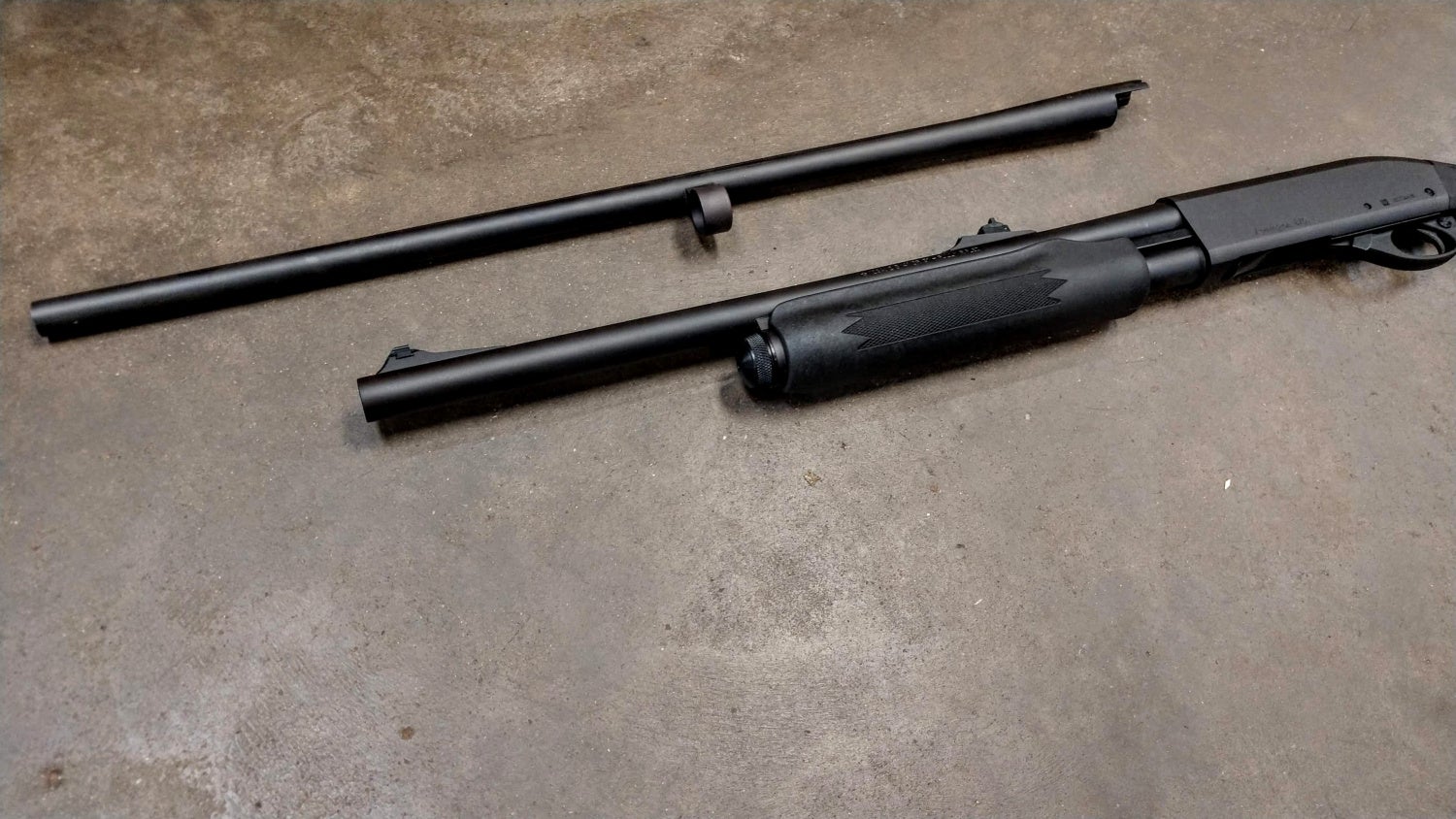
The opposite side of that coin is the faction of hunters who view their firearms as attractive works of art that can still put food on the table. An example of this heads-or-tails relationship is the Remington 870. They offer a plain jane synthetic variant of the 870 that retails for $350 and an extravagant American Classic that exceeds a $1K price tag. Both utilize the same sound mechanical action with vastly different appearances. If you lean towards the prettier vintage of the two your upkeep and cleaning schedule is going to be significantly more involved than the synthetic version. Once again, neither option is wrong, it is merely preference.
Another element to consider is the area and weather in which you hunt. If you are a fair-weather pheasant hunter (only 70 degree sunny days), then you can afford to bring a fancier firearm out into the field. If you are an accident-prone duck hunter in a muddy bog, you might not only be accident-prone but also delusional if you want to bring a fancy gun with you. So choose a stock material for your firearm that is suited to the way you hunt, where you hunt, and the weather you might encounter.
FIRST FIREARM SERIES: FIRST Hunting Shotgun – cleaning
Most shotguns nowadays field strip or dis-assemble fairly easily, and if it is something you cannot intuitively figure out through reading your owner’s manual we always have YouTube demonstrations to save us. That is not the problem that needs to be addressed. What you need to ask yourself is how frequently will you clean your gun?… BE HONEST…
If you hate cleaning guns, you have no judgment from me. Then, a pump-action may be better suited for you as opposed to a semi-auto. The reason being is even a pretty dirty pump-action will cycle and work because you, the shooter, are manually cycling the action every time. I am not advocating you should not clean your guns, but if that is realistically where you are at, then pumps can be your friends.
If you tend to clean your guns pretty often and do a good job moderating yourself, then a semi-auto or pump is fair game to you. A semi-auto offers the advantage of faster shooting and less recoil, but if they become too dirty they can fail to cycle and work. That is why people who keep their firearms clean are better suited for semi-autos.
FIRST FIREARM SERIES: FIRST Hunting Shotgun – miscellaneous
A final thing to consider is your handling of the hunting shotgun. Can you easily manipulate the safety? The action release? Can you load shells decently? Can you point it quickly? Can you safely empty shells from the action? These are all skills that can be taught and learned, but if you are more comfortable completing these tasks on one model versus another it definitely helps from the outset.
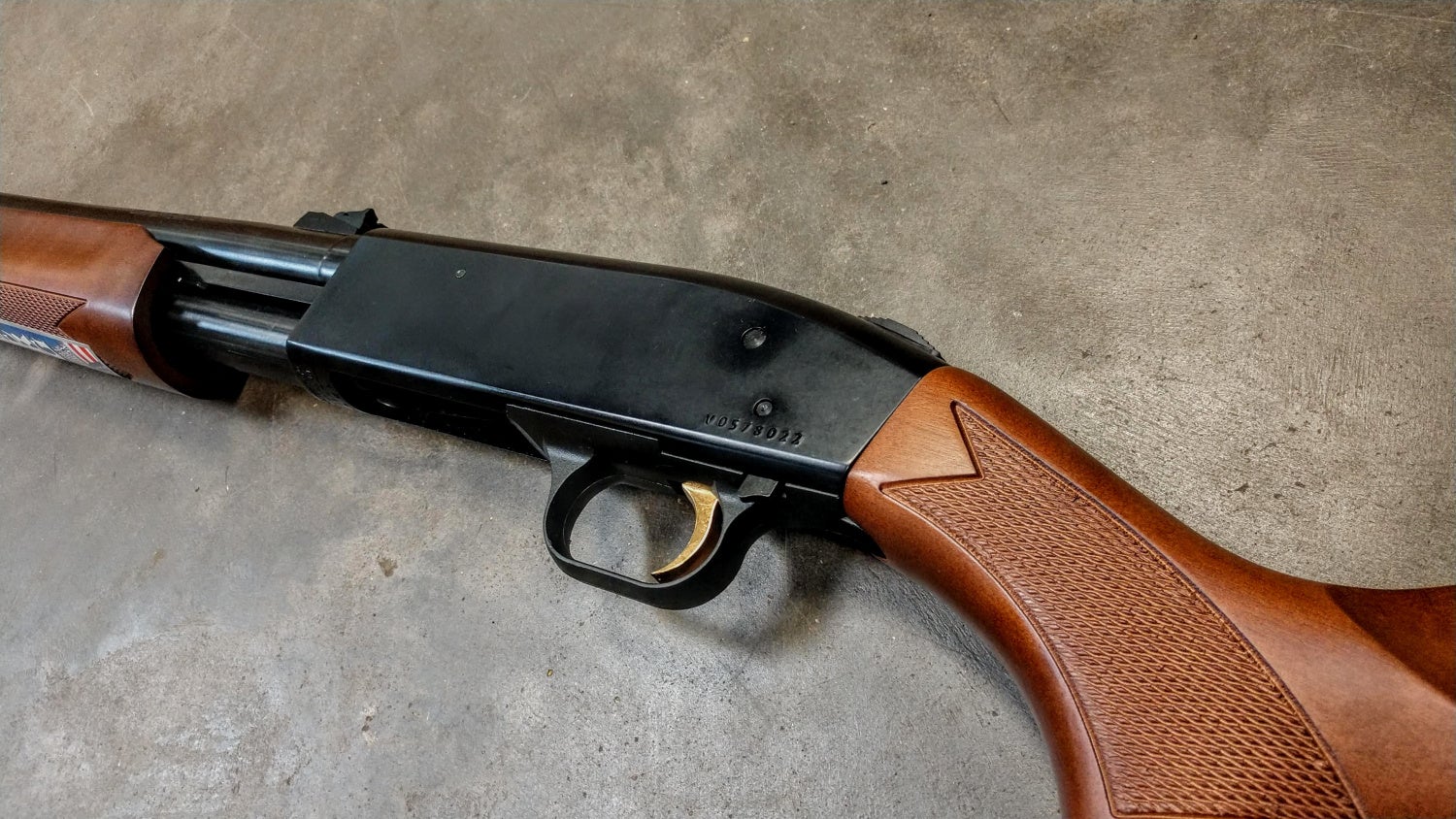
FIRST FIREARM SERIES: FIRST Hunting Shotgun – TFb staff recommendations
As usual, we asked the other staff at TFB for feedback on what they recommend for your first hunting shotgun. As always, they gave great examples. Feel free to check the links in their suggestions.
Giorgio O. – “In Europe, it’s likely the grandpa’s side by side double barrel…”
Nicholas Chen – “I think it depends on what animal you are hunting. I think the Mossberg 500 or Remington 870 Wingmaster pretty much covers the majority of hunting shotguns for the common hunter.”
Mike R. – “I agree with what Nick said. Preference to the Mossberg, only because the safety is easier to manipulate.”
Nathaniel F. – “Single barrel and pump.”
Rusty S. – “My first hunting shotgun was a Super Black Eagle, and I have no regrets, but the pump guns are plentiful, cheap, and the used market is huge.”
Austin Rex – “As sub $500 ‘entry level’ shotguns go, I’d say personally… 1. Benelli Nova… 2. Remington 870… 3. Mossberg 500… They’re all good guns. I always tell people to look down the rib, and if it’s easy to see a “flat rib” it’s probably a better fit for you. Past that, you’re stuck spending a lot of money on tailor-fit shotgun accessories.”
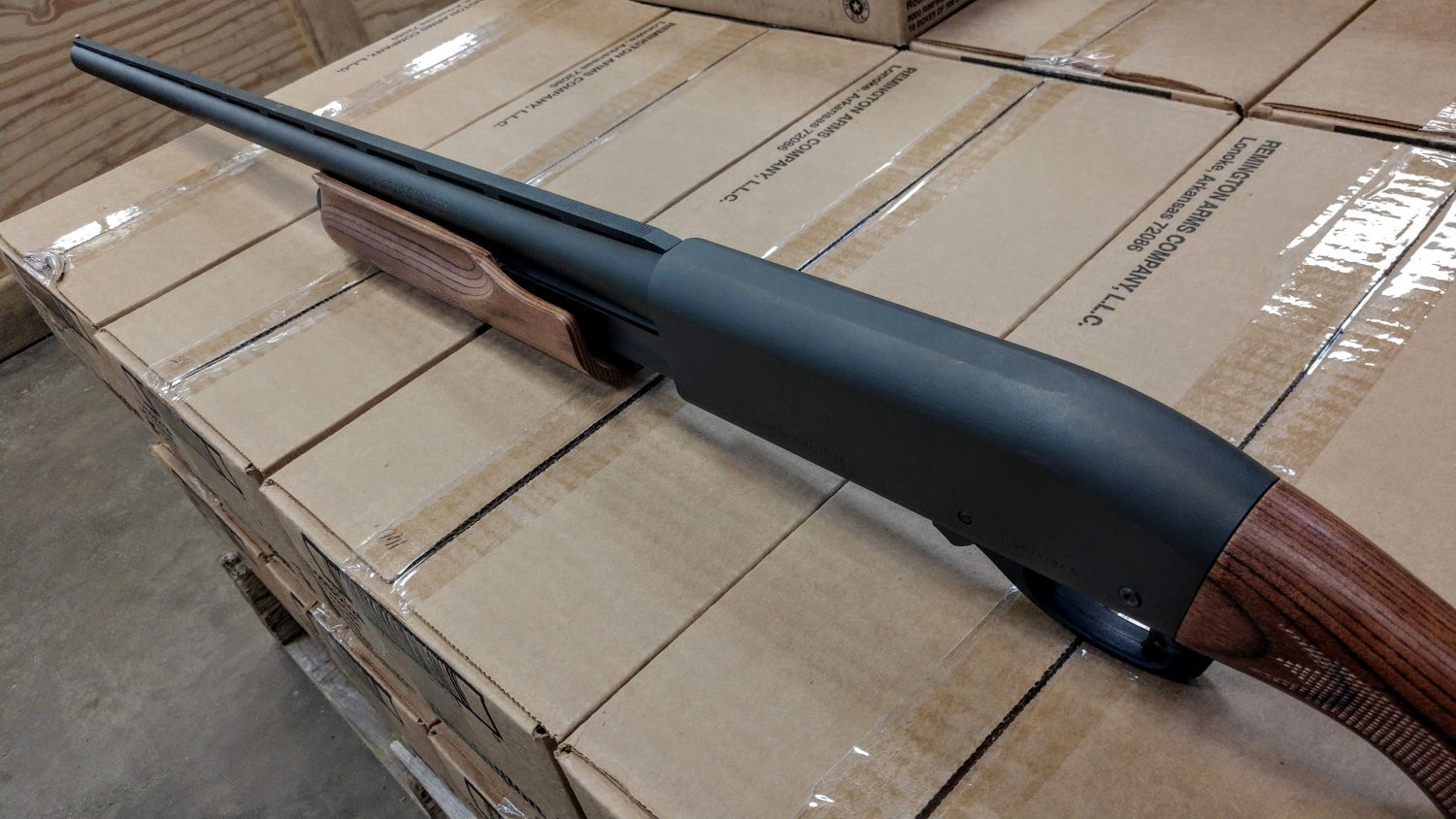
FIRST FIREARM SERIES: FIRST Hunting Shotgun – conclusion
We hope that this article has helped point you in the right direction of finding what could be your first hunting shotgun. I injected a lot of my personal experiences and bias into the article, but hopefully, you can surmise for yourself what is best for you. The final parting advice I can give is to ask others questions and ask yourself questions. Do not be afraid to poll your friends, fellow hunters, and firearm advocates you trust. Also, have sincere conversations with yourself about what will suit you best. Do not be a lemming. Choose what is best for you even if that makes you different from what I recommended and it is different from what others you know might own.
So what do you guys and gals think? Do you believe that a pump-action or semi-automatic shotgun is the way to go? Do you recall what your first hunting shotgun was? Do you have regrets? Is there a dream hunting shotgun that you are still pursuing? Let us know your thoughts in the Comments below! We always appreciate your feedback.
 Your Privacy Choices
Your Privacy Choices
